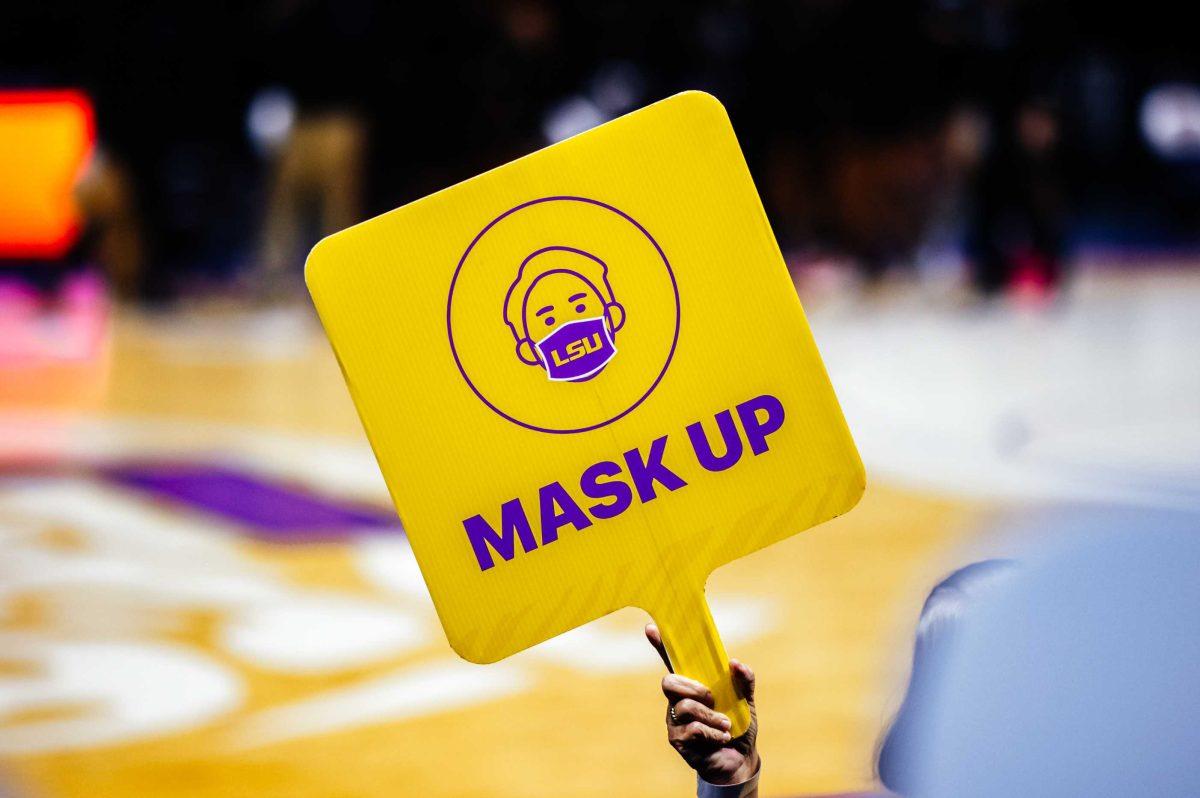LSU may be at the bottom of SEC rankings this football season, but it’s gained a top spot on a new SEC leaderboard for having some of the toughest COVID-19 mitigation protocols of any conference school.
The university put HEPA filters in classrooms to reduce circulation of virus particles, requires masking indoors in all campus buildings and, most prominently, instated a vaccine mandate for the student body earlier this semester.
Only one other SEC university, Vanderbilt, also requires students to be vaccinated.
LSU COVID protocols were steeped in fighting between university administration and faculty at the beginning of the semester. LSU initially maintained that state law prohibited the university from mandating the COVID-19 vaccine, though other Louisiana colleges needed only Louisiana Department of Health approval.
Faculty members voiced concerns over returning to campus amid Louisiana’s worst surge of COVID-19 cases—including a Faculty Council vote with over 90% support for a vaccine mandate last May—but their complaints were largely dismissed as campus mostly returned to normal.
It wasn’t until the Pfizer vaccine received full Food and Drug Administration approval in late August that the mandate was instated. Now, over 83% of the student body and 77% of faculty have reported full vaccination at LSU, while other universities struggle to mitigate COVID transmission rates in the aftermath of the Delta surge.
Looking at the numbers
Because each university uses different criteria for public reporting of COVID-19 cases, comparing each SEC school with total accuracy is next to impossible. Some universities, like the University of Georgia and Ole Miss, rely exclusively on self-reporting, while LSU’s tracking data uses both self-reporting and positive tests at on-campus testing centers.
Using the data that is publicly available, there are some observable trends: namely, universities with more lenient COVID-19 mitigation policies, like UGA, report more COVID-19 cases than universities with harsher policies.
Since LSU’s Sept. 15 deadline for students to receive the first dose of COVID vaccines, its dashboard has only reported an additional 159 cases as of Friday, Oct. 22.
Last month, 27 students were expelled for refusing to comply with the university’s vaccine mandate.
The University of Arkansas has reported over 1,600 cases since the beginning of the fall semester. Arkansas requires masks, but not vaccination and has about 27,000 students. Arkansas’ data includes self-reported cases as well as positive COVID tests.
Another notable case is that of Texas A&M, with 68,000 students, which has reported over 4,000 COVID-19 cases since the beginning of the fall semester. This large number of COVID-19 cases is due to mandatory, targeted testing campaigns.
Over the course of three consecutive weeks, Texas A&M administered over 60,000 COVID-19 tests. On any other week during the fall semester, the university reported similar levels of COVID positive cases to other SEC universities.
In comparison, LSU has reported 502 cases out of 39,000 students and faculty since the first day of classes on Aug. 23. However, only about 13,000 tests have been administered on campus since May 9, and new criticisms have arisen regarding HEPA filters being a waste of money as they are often unplugged.
Vanderbilt University, which has about 12,000 students, has reported almost 400 cases since the beginning of the fall semester.
Leading in Football, Lagging in COVID
While UGA may lead the SEC in football, the university has no enforceable COVID-19 mitigation policies. UGA “strongly encourages” students and faculty to wear a mask and get vaccinated, but the University System of Georgia does not allow universities to implement mandates on either. Faculty are not allowed to force students to wear a mask in their classrooms or their own offices.
UGA reported having over 1,600 COVID cases since the beginning of the fall semester, one of the highest rates of any school in the SEC. That number includes Shawn Kuhn, a senior exercise and sports science major, who died on Oct. 11 after a weeks long battle with COVID-19 and resulting pneumonia.
Janet Frick, a psychology professor at UGA, has been a vocal critic of the USG’s policy.
“It was just this top-down imposition of this arbitrary policy that was really in direct opposition to what the CDC was recommending, and to what the data was claiming would be best practice for the state of Georgia in the fall,” Frick said.
On Sept. 21, more than 50 tenured life sciences professors at UGA signed a letter to the university system informing them that they will begin requiring masks in their own classrooms.
The letter, written by Jeffrey Bennetzen, a geneticist at UGA, states: “In order to protect our students, staff and faculty colleagues, we will wear masks and will require all of our students and staff to wear masks in our classes and laboratories until local community transmission rates improve, despite the ban on mask mandates and the USG policy to punish, and potentially fire, any faculty taking this action.”
On Sept. 22, Teresa MacCartney, acting chancellor of the University System of Georgia, said that their “surveillance testing is at its lowest rate since UGA began surveillance testing last year with only eight of 1,167 tests coming back positive for a positive rate of 0.67%. Due to this decline in transmission, your intent to disregard USG policy and require masks ‘until local transmission rates improve’ is not necessary.”
Bennetzen said the group is asking the USG to follow CDC recommendations.
“The great majority think that we should have mask mandates and think that we should require vaccines,” he said, “other schools do like Cornell; there’s a lot of schools to do this. And it works in these schools, their rates of infection are down dramatically.”
Nathan Kalmoe, a mass communication professor at LSU, disapproves of UGA’s policy.
“In a just world, a no-mask policy would result in criminal liability for the decision-makers for the illness and deaths they cause,” Kalmoe said. “It’s as if the school’s intention is to hurt as many people as possible. You probably can’t print what I think of the people who do that to others.”
Red Team, Blue Team
Universities are governed by a body made up of political appointees. Of the 11 states that have universities in the SEC, only two have democratic governors: Louisiana and Kentucky.
Robert Mann, a mass communication professor at LSU, said that it is inevitable that public universities are political to a degree.
“The university can’t be immune from politics,” he said, “the governors appointed all these people that run the university… they’re all political people.”
Mann said that it helped “having a democratic governor or just having a governor who’s not a nutcase,” but that the influence of Attorney General Jeff Landry, a Republican and staunch opponent of the vaccine mandate, caused the university to back down from instituting a vaccine mandate earlier.
“I think that’s what influenced the LSU folks early on. I was in several meetings where DeCuir was asked about this, and he always cited Landry,” Mann said, referring to Vice President of Legal Affairs and General Counsel Winston C. DeCuir Jr. “He would read these letters that Landry had written and cite conversations or what he heard Landry say, and it was clear that Landry had gotten inside his head.” Landry said in a letter to former interim President Thomas Galligan in June that LSU imposing a vaccine mandate would be illegal and violate students’ rights.
Mann advised that faculty at universities throughout the SEC should not be afraid to escalate the situation.
“You have got to be willing to engage in some drastic action now,” he said. “You can’t just play by the old rules. On this campus, it was convening the entire faculty, but on another campus, it may have been sit-ins or protest or picket lines.”





